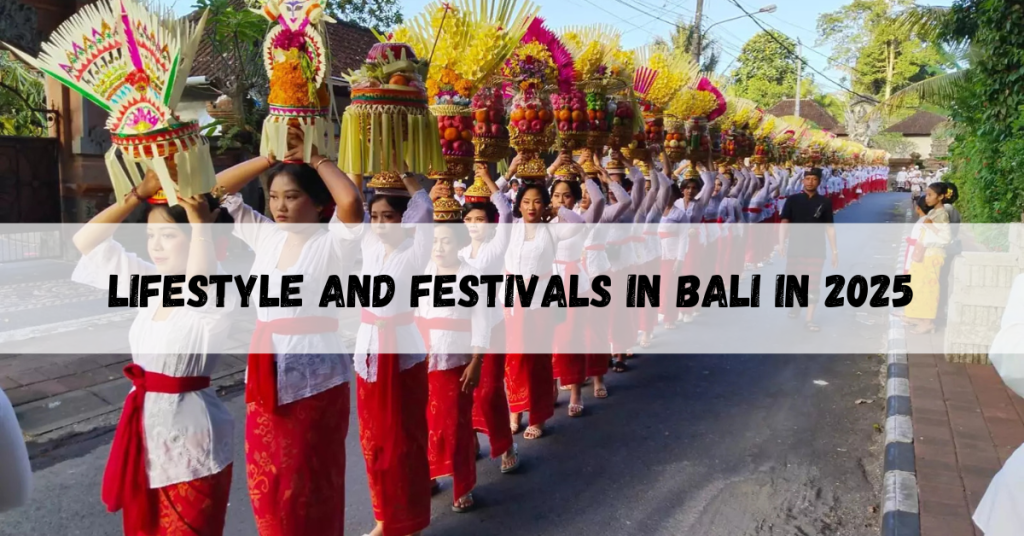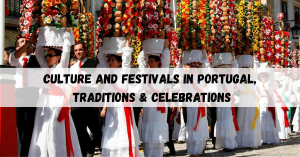Bali is more than just a tropical paradise, it’s an island rich in tradition, spirituality, and artistic expression. Beyond its lush landscapes and pristine beaches, the Balinese lifestyle revolves around a deep-rooted philosophy of harmony, while its festivals offer a mesmerizing glimpse into centuries-old traditions. Whether you’re drawn to sacred ceremonies, lively parades, or quiet moments of self-reflection, Bali is a cultural experience like no other. This guide to Lifestyle and festivals in Bali will cover everything, every traveler needs.
The Unique Lifestyle in Bali

Bali’s way of life seamlessly blends the ancient with the modern. The island is known for:
- Spirituality: Hindu rituals and temple ceremonies are a daily part of life.
- Community Living: The banjar (village community) plays a crucial role in maintaining traditions.
- Artistic Heritage: Dance, music, and intricate carvings are a fundamental part of Balinese identity.
The Balinese philosophy of Tri Hita Karana, harmony between humans, nature, and the divine—guides everyday life.
Balinese Daily Life and Culture
| Aspect | Description |
|---|---|
| Religious Offerings | Daily canang sari (flower offerings) placed in temples, homes, and streets. |
| Family and Tradition | Strong family bonds and multi-generational households are common. |
| Community Involvement | Every village participates in collective ceremonies and social duties. |
Balinese culture thrives on rituals, hospitality, and maintaining a balance between work and spirituality.
Traditional Balinese Architecture and Art
Bali’s architecture and art reflect deep spiritual influences. Temples, homes, and palaces follow specific design principles that honor nature and Hindu beliefs.
- Sacred Temples: Structures like Uluwatu and Besakih temples showcase intricate carvings.
- Balinese Carvings: Wood, stone, and silver crafts depict mythology and religious symbols.
- Art in Daily Life: From batik textiles to ornate dance costumes, creativity is everywhere.
Balinese Cuisine: A Flavorful Experience
| Dish | Description |
|---|---|
| Babi Guling | Roasted suckling pig, often prepared for ceremonies. |
| Nasi Campur | A mix of rice, vegetables, and meats with spicy sambal. |
| Lawar | A traditional minced meat and coconut dish. |
Street markets and warungs (local eateries) are the best places to savor authentic Balinese flavors.
Spirituality and Wellness in Bali
Bali has become a global hub for wellness tourism, attracting visitors seeking relaxation and inner peace.
- Yoga and Meditation: Ubud and Canggu offer top-tier retreats.
- Holistic Healing: Traditional Balinese healing methods use herbal remedies and massage.
- Spiritual Pilgrimage: Many travelers visit Tirta Empul for water purification rituals.
The Grand Festivals of Bali
Bali hosts numerous festivals throughout the year, each with deep spiritual and cultural significance.
Nyepi: The Balinese Day of Silence
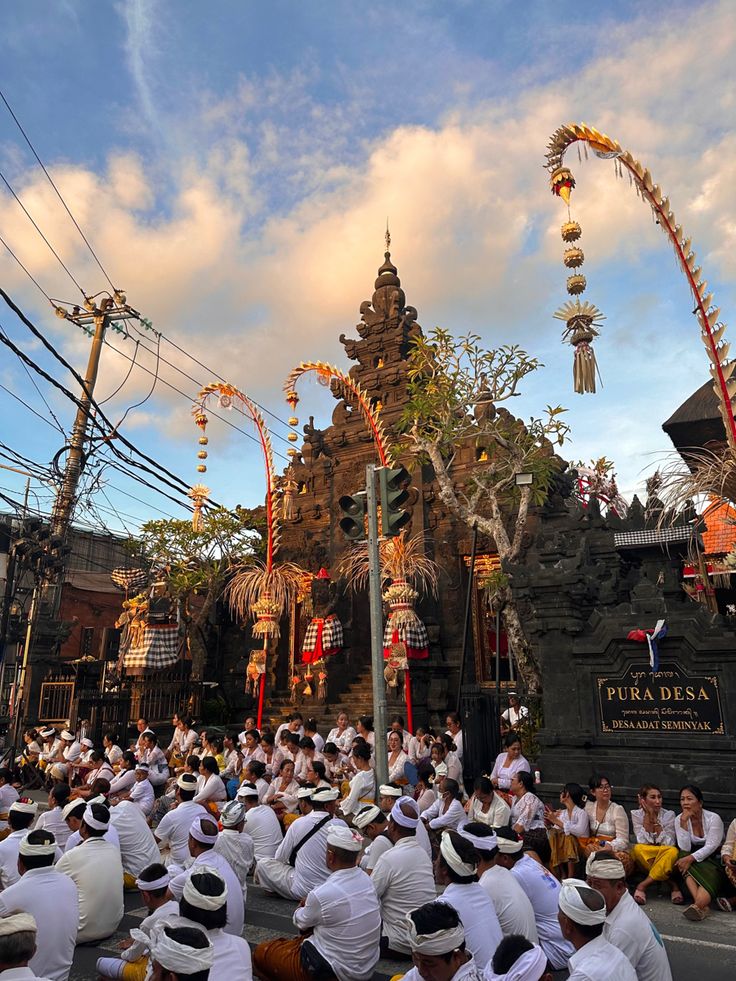
- The Balinese New Year is observed with complete silence, no lights, and self-reflection.
- A unique tradition where the island completely shuts down for 24 hours.
Galungan and Kuningan Festival
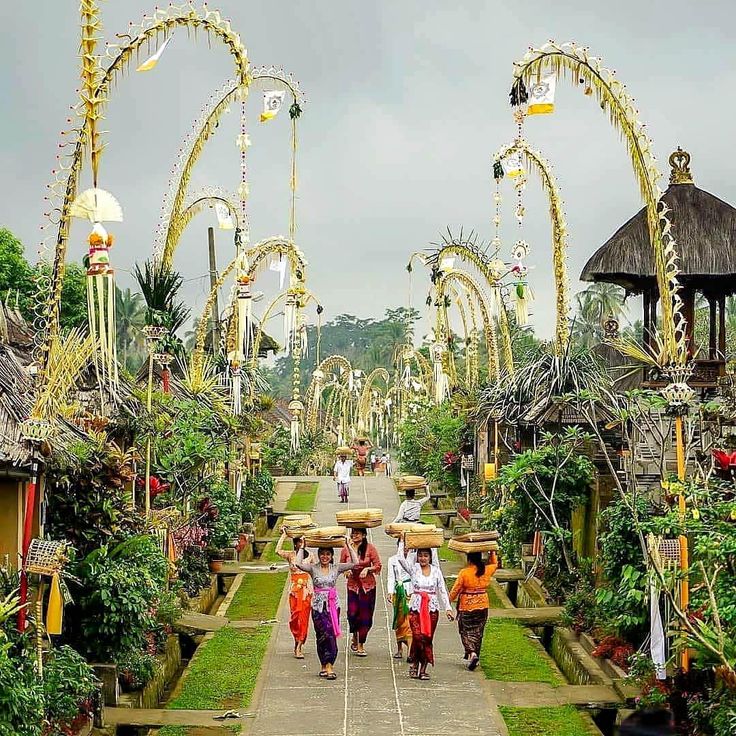
- Celebrates the victory of Dharma (good) over Adharma (evil).
- Streets are decorated with tall penjor (bamboo poles).
Ogoh-Ogoh Parade: A Fiery Spectacle
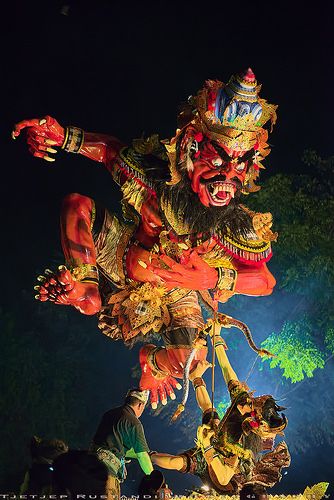
- The night before Nyepi, locals parade giant demon effigies (Ogoh-Ogoh).
- These statues are burned to cleanse the island of negativity.
Bali Arts Festival: A Cultural Extravaganza
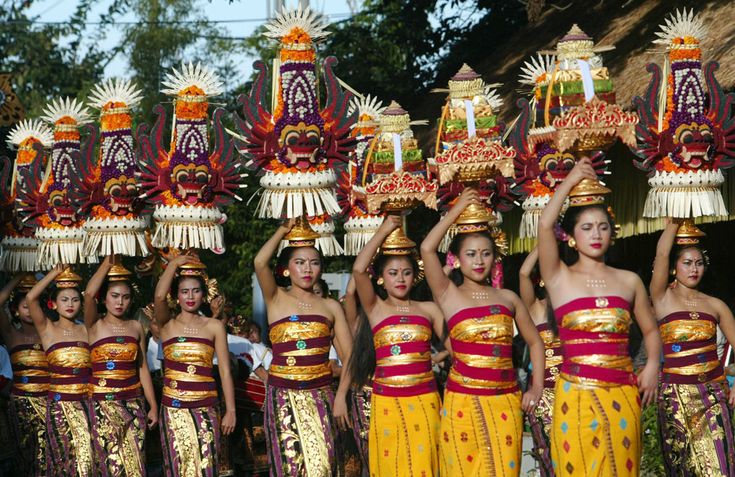
- A month-long celebration in June featuring:
- Traditional Balinese dance and gamelan music.
- Local crafts, paintings, and textile displays.
Balinese Traditional Clothing and Its Significance
Balinese traditional attire is deeply tied to cultural and religious practices. The way people dress reflects their respect for customs and ceremonies.
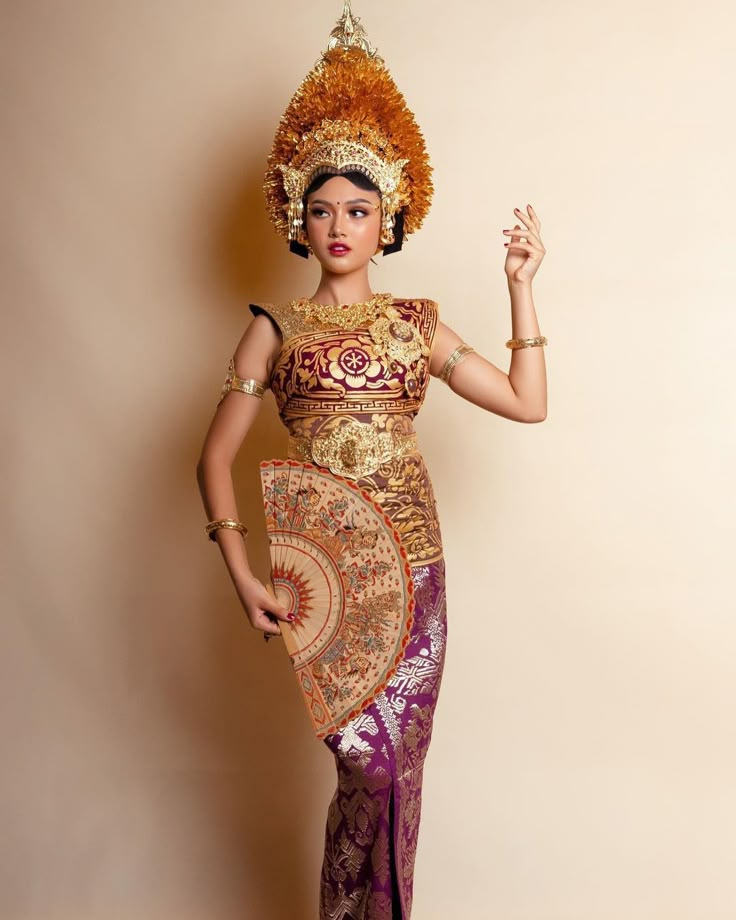
- Men’s Traditional Attire:
- Udeng (headpiece) worn during temple visits and ceremonies.
- Kamen (sarong) wrapped around the waist, paired with a sash.
- Women’s Traditional Attire:
- Kebaya (delicate lace blouse) worn with an elegant sarong.
- Special jewelry and floral decorations, especially for temple visits.
- Occasions for Wearing Traditional Clothes:
- Daily temple offerings and prayers.
- Major ceremonies like weddings, tooth-filing, and Galungan.
Balinese traditional clothing is not just about fashion, it symbolizes spirituality, social status, and cultural pride.
The Role of Dance and Music in Balinese Culture
Dance and music are an integral part of Balinese culture, used to tell stories, honor deities, and entertain.
- Popular Traditional Dances:
- Legong Dance: A graceful performance depicting royal tales.
- Barong Dance: A dramatic battle between good (Barong) and evil (Rangda).
- Kecak Fire Dance: A mesmerizing chant-based performance from the Ramayana.
- Traditional Music: The Gamelan Orchestra:
- A percussive ensemble featuring gongs, xylophones, and drums.
- Played during temple ceremonies, funerals, and festivals.
Dance and music in Bali go beyond entertainment; they are deeply spiritual expressions of faith and storytelling.
The Importance of Rice and Subak Irrigation System
Rice is the lifeblood of Balinese culture, not just as a staple food but as a spiritual and communal element.
- The Subak System: A UNESCO World Heritage Site:
- A centuries-old irrigation system that showcases harmony between humans and nature.
- Managed by local farmers in cooperation with temple priests.
- Jatiluwih Rice Terraces: A Living Cultural Landscape:
- A breathtaking example of Bali’s sustainable farming techniques.
- Visitors can explore lush green terraces and learn about organic rice farming.
- Rice in Rituals and Daily Life:
- Used in religious offerings as a sacred symbol of prosperity.
- Essential in Balinese cuisine, from simple steamed rice to elaborate ceremonial dishes.
The connection between rice, spirituality, and community makes it a core part of Balinese identity.
The Influence of Tourism on Balinese Traditions
Bali’s booming tourism industry has brought economic growth but also challenges in preserving local traditions.
- Positive Impacts:
- Growth in eco-tourism and cultural tourism, promoting traditional arts and crafts.
- Increased opportunities for local artisans, dancers, and temple guides.
- Challenges:
- Over-commercialization of sacred sites and ceremonies.
- The risk of losing authenticity due to modernization.
- Efforts to Balance Tourism and Tradition:
- Community-based tourism that allows visitors to experience authentic Balinese life.
- Cultural conservation programs supported by local authorities.
Bali continues to navigate the balance between welcoming global travelers and protecting its rich heritage.
Unique Balinese Wedding Traditions
Balinese weddings are elaborate, multi-day celebrations infused with spirituality, rituals, and family values.
- Pre-Wedding Rituals:
- Mekala-kalaan – A purification ceremony before the wedding.
- Arranged marriages are still common, but love marriages are increasingly accepted.
- The Wedding Ceremony:
- Held at the bride’s family home, followed by offerings and prayers.
- The couple wears richly adorned traditional attire.
- Post-Wedding Traditions:
- The bride officially joins the groom’s family and community.
- A grand feast is shared among relatives, neighbors, and village members.
Balinese weddings are not just a union of two people but a sacred connection between families and the spiritual realm.
Best Time to Visit Bali for Festivals
| Month | Festival |
|---|---|
| March | Nyepi & Ogoh-Ogoh Parade |
| June – July | Bali Arts Festival |
| November – December | Galungan & Kuningan |
Plan your visit around these months for the best cultural experiences.
Bali’s lifestyle and festivals are a captivating blend of spirituality, tradition, and artistic expression. Whether you seek peaceful meditation, cultural immersion, or vibrant celebrations, the island offers a unique experience that resonates with every traveler.
Frequently Asked Questions (FAQs)
What is the most famous festival in Bali?
Nyepi, the Day of Silence, is Bali’s most unique and widely observed festival.
Can tourists participate in Balinese festivals?
Yes, but visitors should respect traditions, dress appropriately, and follow local customs.
When is the best time to visit Bali for cultural experiences?
March, June, and December are ideal months for major festivals.
What should I wear when visiting temples in Bali?
A sarong and sash are required for temple visits.
Is Bali’s food spicy?
Balinese cuisine is flavorful, and many dishes include chili-based sambal, but milder options are available.
